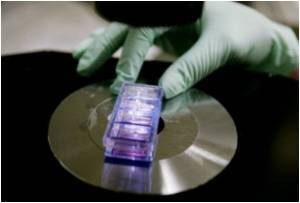Researchers have identified new drug target that regulates and stimulates the growth of beta cells. The research appears in Cell Metabolism.

The work builds on a discovery made five years ago, when Dr. Stoffel and his team first showed that a once obscure protein, called Tmem27, is localized on the surface membrane of beta cells, the insulin-producing cells that are located within islets in the pancreas. At the time, they found that increased levels of Tmem27 on beta cells were associated with increased islet mass in mice. They also found that if Tmem27 is cleaved, it left the protein completely inactivated.
"We hypothesized that if we could prevent Tmem27 from being cleaved and increase the levels of this protein, we could get more beta cell growth," says Dr. Stoffel, who is also a 2010 recipient of JDRF's Gerold & Kayla Grodsky Basic Research Scientist Award. "This observation gave us the rationale to look for what was inactivating Tmem27."
After screening possible molecules that could snip Tmem27, Dr. Stoffel and his team found the culprit: Bace2, an enzyme protein that, like Tmem27, also resides on the outer surface (known as the plasma membrane) of the beta cell. The researchers confirmed their theory by finding that mice that lacked Bace2 had larger islets and the beta cells in the islets increased in number, a process known as proliferation or regeneration. They also found that these mice were able to clear glucose from the blood more efficiently than control mice with Bace2.
Dr. Stoffel and his team next aimed to inhibit Bace2 in an effort to control and promote the growth of beta cells. To do so, they teamed up with scientists at Hoffmann-LaRoche who developed a chemical compound that could inhibit Bace2. When the scientists gave this compound to mice, they saw that it inhibited Bace2 and stimulated the growth of new beta cells. Importantly, Bace2, and not its close relative Bace1, which is implicated in other diseases, cleaves the Tmem27 protein, suggesting the potential for developing a Bace2 inhibitor as a diabetes-specific therapy.
In addition to identifying a new drug target for promoting beta cell regeneration, Dr. Stoffel's work may also help in developing tests to measure the amount of Tmem27 fragments in the blood – a biomarker that could be used as an index of beta cell number.
Advertisement
Source-Eurekalert











